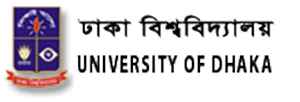Sustainable Development Goals

SDG 14: Life Below Water at Dhaka University
SDG 14: Life Below Water at Dhaka University
Dhaka University (DU) plays a vital role in supporting Sustainable Development Goal 14 (SDG-14): Life Below Water, leveraging its expertise to protect aquatic ecosystems, enhance biodiversity conservation, and promote sustainable water management. As a riverine nation, Bangladesh faces unique challenges, including cyclone-prone coastal areas, upstream flooding, and the need for biodiversity preservation. DU addresses these challenges through multidisciplinary education, advanced research, and community engagement initiatives.
Shaping Future Leaders
- Multidisciplinary Education on Aquatic Life
- The Faculty of Biological Sciences houses 11 departments, including:
- Soil, Water, and Environment
- Botany
- Zoology
- Biochemistry and Molecular Biology
- Microbiology and Fisheries
- Genetic Engineering and Biotechnology
- Objective: Provide comprehensive education on aquatic ecosystems, water quality, and biodiversity.
- Impact: Prepares students to tackle challenges related to aquatic life and sustainability.
- Reference: Faculty of Biological Sciences, DU.
2. Multidisciplinary Education on Aquatic Life
- The Faculty of Biological Sciences houses 11 departments, including:
- Soil, Water, and Environment
- Botany
- Zoology
- Biochemistry and Molecular Biology
- Microbiology and Fisheries
- Genetic Engineering and Biotechnology
- Objective: Provide comprehensive education on aquatic ecosystems, water quality, and biodiversity.
- Impact: Prepares students to tackle challenges related to aquatic life and sustainability.
Reference: Faculty of Biological Sciences, DU
Innovative Solutions for Tomorrow
- Advanced Research on Aquatic Biodiversity
- Conducted by the Center of Advanced Studies and Research on Biological Sciences, with projects such as:
- Endangered Species Conservation and Fisheries (Prof. Alifa Bintha Haque): Investigates sustainable fisheries to support coastal communities.
- Macro-Benthic Invertebrates and Water Quality (Dr. Kaniz Fatema): Explores correlations between water quality parameters and aquatic biodiversity in tropical rivers.
- Fisheries Stock Monitoring (Md. Hasan Faruque): Studies industrial fin fish trawling in the Bay of Bengal to optimize resource management.
- Impact: Provides critical data to support biodiversity conservation and sustainable fisheries.
- Reference: DU Center of Advanced Studies and Research on Biological Sciences.
2. Botanical Research on Wetland Biodiversity
- The Department of Botany focuses on phytoplankton diversity in wetlands such as Tanguar Haor and Hakaluki Haor.
- Objective: Assess and conserve aquatic biodiversity using cutting-edge genome editing techniques.
- Impact: Contributes to the ecological preservation of critical wetland ecosystems.
- Reference: DU Botany Department.
3. Conservation Projects by Zoology Department
- Projects include:
- Conservation of Transboundary Wildlife in the Ganges River.
- Marine Protected Areas and Sawfish Conservation, in collaboration with the Bangladesh Forest Department.
- Microplastics in Rivers and Wetlands, in collaboration with the World Bank.
- Scaling Up Genomic Resources for Fish Conservation, supported by the United States Department of Agriculture.
- Impact: Enhances biodiversity monitoring and protection while addressing pollution and habitat degradation.
- Reference: DU Zoology Department.
Sustainable Campus and Practices
- Water Management and Climate Action
- DU actively engages in water resource management to mitigate flooding and safeguard aquatic biodiversity in collaboration with government and international organizations.
- Objective: Address the impacts of upstream flooding and coastal cyclones to protect aquatic habitats.
- Impact: Supports the sustainability of riverine and coastal communities.
- Reference: DU Sustainability Reports.
2. Collaborations for Aquatic Conservation
- Partnerships with NGOs, government agencies, and international institutions ensure the implementation of best practices for aquatic ecosystem management.
- Example Projects:
- Research on antimicrobial resistance in amphibians in Dhaka, funded by the Ministry of Science and Technology.
- Toxicological assessments of microplastic-contaminated water, in collaboration with the Bangladesh Food Safety Authority.
- Reference: DU Research and Collaborations.
Empowering Communities for Change
- Workshops on Aquatic Ecosystem Sustainability
- DU’s seminars and workshops bring together students, researchers, and practitioners to address the challenges of aquatic biodiversity loss and ecosystem degradation.
- Impact: Raises awareness and provides actionable strategies for local and national stakeholders.
- Reference: DU Community Engagement Programs.
2. Empowering Coastal Communities
- Research projects by DU focus on balancing biodiversity conservation with livelihood support for coastal communities, ensuring economic sustainability without harming aquatic ecosystems.
- Reference: DU Center for Community Engagement.

